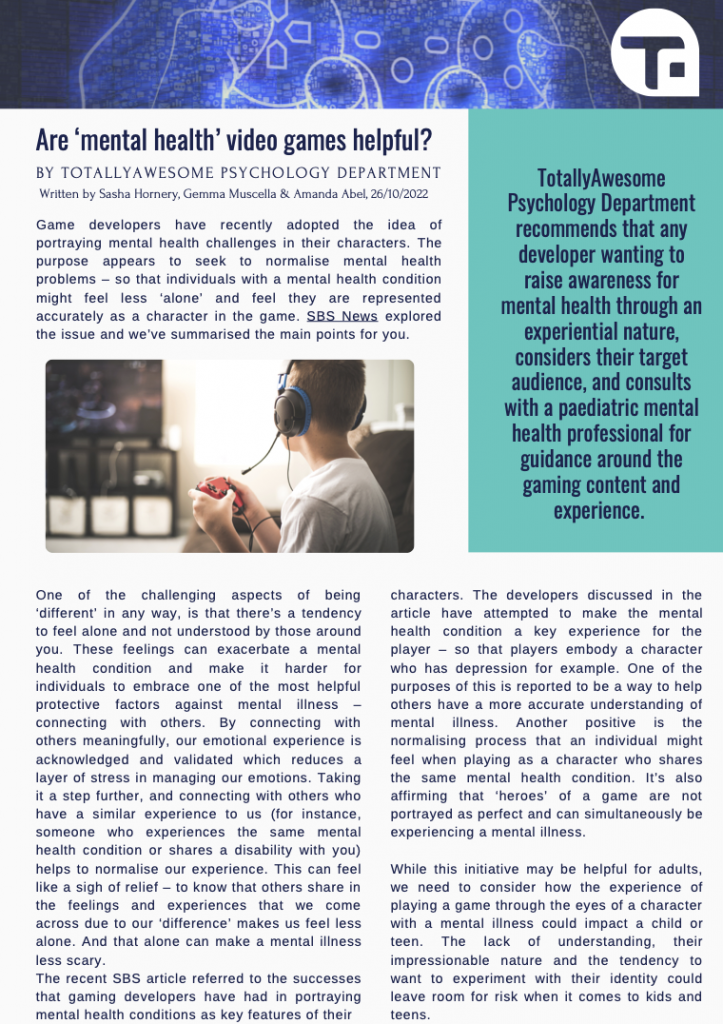Are ‘Mental Health’ Video Games Helpful?
By TotallyAwesome’s Psychology Department (Sasha Hornery, Gemma Muscella & Amanda Abel)
Game developers have recently adopted the idea of portraying mental health challenges in their characters. The purpose appears to seek to normalise mental health problems – so that individuals with a mental health condition might feel less ‘alone’ and feel they are represented accurately as a character in the game. SBS News explored the issue and we’ve summarised the main points for you.

One of the challenging aspects of being ‘different’ in any way, is that there’s a tendency to feel alone and not understood by those around you. These feelings can exacerbate a mental health condition and make it harder for individuals to embrace one of the most helpful protective factors against mental illness – connecting with others. By connecting with others meaningfully, our emotional experience is acknowledged and validated which reduces a layer of stress in managing our emotions. Taking it a step further and connecting with others who have a similar experience to us (for instance, someone who experiences the same mental health condition or shares a disability with you) helps to normalise our experience. This can feel like a sigh of relief – to know that others share in the feelings and experiences that we come across due to our ‘difference’ makes us feel less alone. And that alone can make a mental illness less scary.
TotallyAwesome’s Psychology Department recommends that any developer wanting to raise awareness for mental health through an experiential nature, considers their target audience, and consults with a paediatric mental health professional for guidance around the gaming content and experience.
The recent SBS article referred to the successes that gaming developers have had in portraying mental health conditions as key features of their characters. The developers discussed in the article have attempted to make the mental health condition a key experience for the player – so that players embody a character who has depression for example. One of the purposes of this is reported to be a way to help others have a more accurate understanding of mental illness. Another positive is the normalising process that an individual might feel when playing as a character who shares the same mental health condition. It’s also affirming that ‘heroes’ of a game are not portrayed as perfect and can simultaneously be experiencing a mental illness.
While this initiative may be helpful for adults, we need to consider how the experience of playing a game through the eyes of a character with a mental illness could impact a child or teen. The lack of understanding, their impressionable nature and the tendency to want to experiment with their identity could leave room for risk when it comes to kids and teens.

Read our blog for more interesting insights on all things youths and digital media!
